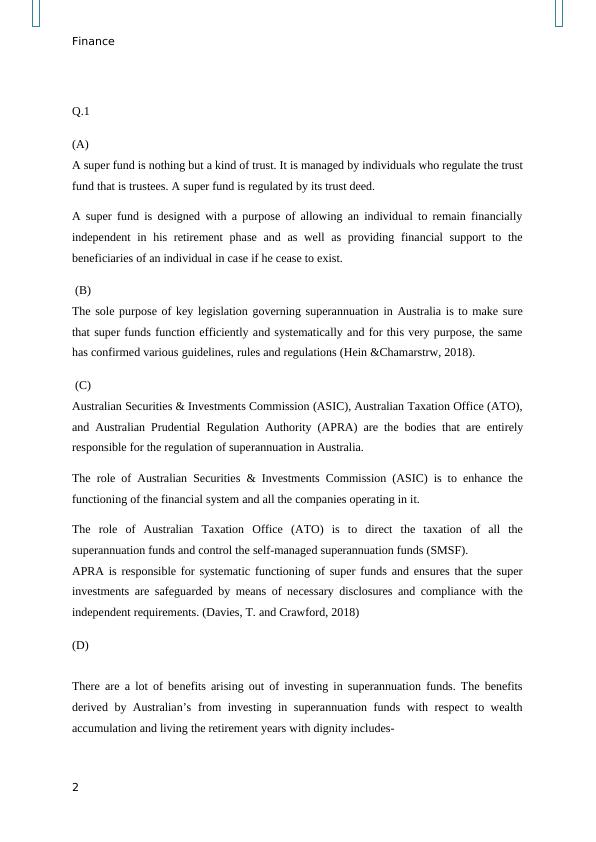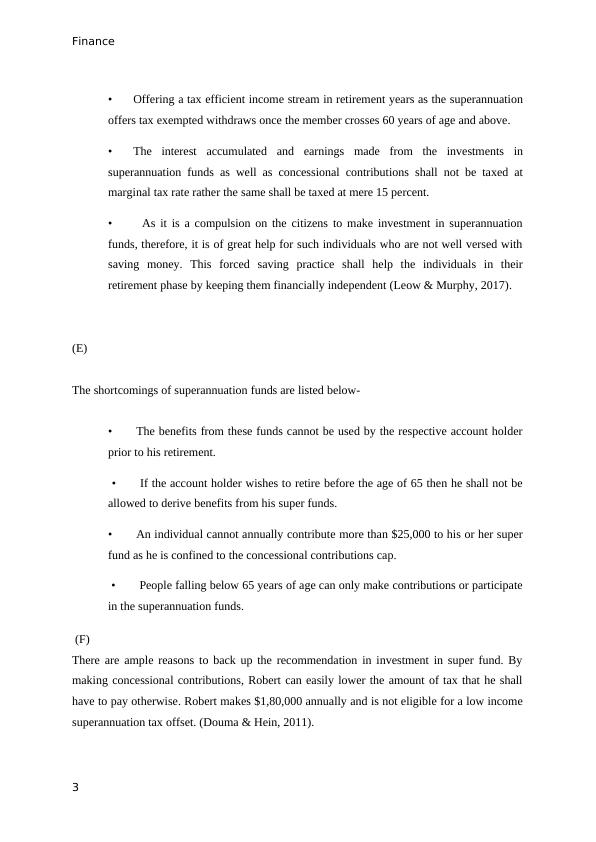Superannuation Funds: Benefits, Regulations, and Limitations
Provide specific advice on whether superannuation is the best way for Robert and Jillian to achieve their retirement goal of $100,000 p.a. income.
10 Pages1819 Words52 Views
Added on 2023-01-11
About This Document
This document provides information on superannuation funds in Australia, including their benefits, regulations, and limitations. It explains the role of ASIC, ATO, and APRA in regulating superannuation. The document also discusses the conditions for accessing funds and the tax implications. Additionally, it covers employer responsibilities and contribution options.
Superannuation Funds: Benefits, Regulations, and Limitations
Provide specific advice on whether superannuation is the best way for Robert and Jillian to achieve their retirement goal of $100,000 p.a. income.
Added on 2023-01-11
ShareRelated Documents
End of preview
Want to access all the pages? Upload your documents or become a member.
Factors to Consider in Superannuation Contribution Decision Making
|11
|2637
|131
Role of SMSF in Australia
|16
|3237
|41
Corporate Finance
|7
|866
|24
Australian Superannuation: Investment and Defined Benefit Plans
|11
|2852
|81
Types of Taxes, Superannuation, Insurance, OH&S, Renewable Materials, Low Energy Materials
|10
|1589
|253
Defined Benefit Plan: Superannuation Contributions and Investment Choice Plan
|11
|2807
|180



